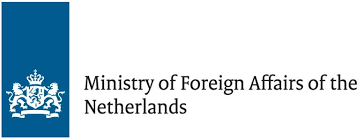Community / Land projects / Strengthening Coordination and Self-Management of Drought Affected IDPs in Bosaso through an Integrated Mechan
Strengthening Coordination and Self-Management of Drought Affected IDPs in Bosaso through an Integrated Mechan

€137791.6858
03/22 - 12/22
Завершено
This project is part of
Implementing Organisations
Donors
Data Providers
Objectives
This project seeks to improve the living conditions, assistance, and protection of drought and conflict affected population and host communities by facilitating the equitable access to multi-sectorial services in Bossaso through effective Camp Coordination and Camp Management. The core problems that the project intends to address are restricted humanitarian access, lack of information on service provision at site level, lack of land tenure and forced evictions. The intervention is an integrated response across the three clusters of Camp Coordination and Camp Management (CCCM), Shelter and Housing Land amp Property (HLP) where PSA will implement CCCM activities, whereas NRC will implement shelter and HLP activities. In order to facilitate a seamless implementation of the integrated project, PSA and NRC have settled on pre-teaming agreement, which outlines and expresses a convergence of will between the two organizations, indicating an intended common line of action, expectations and roles the document has been uploaded as part of attached documents. The collaboration between the two organizations under the integrated project will ensure there is teamwork where information and intervention is synchronized through maximum utilization of the resources and information in accordance with SHF principles. The project PSA will target 2,900 HHs (17,400 individuals, 50% females) that are most vulnerable in across Bossaso IDPs sites, PSA will directly target the following camps and population per sites: Xaadoole(1178), Saylada xoolaha(2552), Biyo kulule(1968), New biyo kulule(2271), Banaadir(1765),Bulo mingis(3296), Raf iyo raaxo(1976), Tuurjaale(1567) and Xaafatu carab(827) IDPs camps. In addition, in areas with some of the gaps, the project will indirectly include other sites that require additional assistance due to the large number of IDPs living in the camps. The sites would be selected in close coordination with CCCM cluster displacement data and information, where 80% of the beneficiaries targeted will be IDPs and 20% host communities. On disability inclusivity, the rights of PWDs will be put into consideration by disaggregating beneficiary data by disability (preferably using the Washington Group Short Set of Questions (WGSS), by being included in camp management committees (CMCs) and by ensuring feedback and complaints mechanisms are designed to ensure accessibility for PWDs. Also, gender will be mainstreamed into the project through the specific consideration of the different needs of women, men, boys and women. Additionally, minority groups rights (minority clans and other groups) will be fully be put under consideration through camp leadership and participation in cash for work activities. The proposed CCCM activities will comprise 1 Mapping of the existing governance structures: 9 Service Mapping: 2 Bi-annual site verification The establishment/ efficient use of referral pathways to benefit 17400 individuals Communication with Communities (CwC) to reach 17400 individuals 3 Coordination meetings with service providers Establishment of one site roving team 9 Eviction risk data mapping CMCs capacity building on governance for 150 participants (CMCs) 3 Safety Audits Installation and rehabilitation of 60 solar lights Garbage Collection will benefit 126 individuals (60% women) Special mobility assistance for 80 PwDs Establishment of one Community Feedback Mechanism and Hotline Site management and planning training for 150 participants Lobby and advocacy on land tenure and ownership to benefit 17400 individuals



